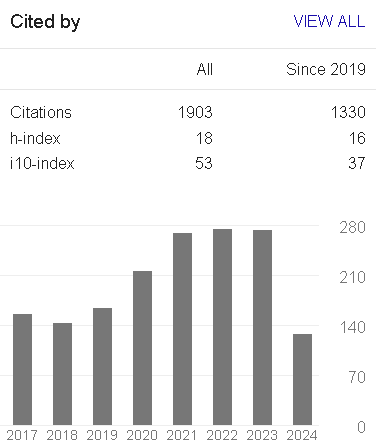Blockchain-based smart energy trading: motivations and challenges
Keywords:
blockchain, energy trading, smart energy, renewable energy, energy marketAbstract
The growing population and high demand of renewable energy leads to a decentralized solution to trade energy smartly. In an innovative energy market, consumers and prosumers are able to trade green energy locally and directly to balance the generation and consumption through decentralized community. In this paper, we present a comprehensive review of existing energy trading systems, their motivations and challenges. For this reason, new ICT technologies are investigated to consider their incredible affections on data transparency, energy trading and how energy consumer and producers are connected intelligently. The similarities, differences and challenges in different energy trading projects are identified. The comparison analysis leads us to analyze the future scenario of energy trading that can offer high level of data transparency, low trading cost and less trading time.
References
Marinakis, V., et al., 2018. From big data to smart energy services: An application for intelligent energy management. Future Generation Computer Systems.
Hamari, J., Sjöklint, M. and Ukkonen, A. 2016. The sharing economy: Why people participate in collaborative consumption. Journal of the association for information science and technology. 67(9), 2047-2059.
Abdella, J. and Shuaib, K. 2018. Peer to peer distributed energy trading in smart grids: A survey. Energies. 11(6), 1560.
Malik, A. and Ravishankar,J. 2016. A review of demand response techniques in smart grids in IEEE Electrical Power and Energy Conference (EPEC).
Wang, H., et al., 2016. Reinforcement learning in energy trading game among smart microgrids. IEEE Transactions on Industrial Electronics. 63(8), 5109-5119.
Haq, E.U., et al., 2017. Smart grid security: threats and solutions in 13th International Conference on Semantics, Knowledge and Grids (SKG).
Shuaib, K., et al., 2017. Secure plug-in electric vehicle (PEV) charging in a smart grid network. Energies. 10(7), 1024.
Gubbi, J., et al., 2013. Internet of Things (IoT): A vision, architectural elements, and future directions. Future generation computer systems. 29(7), 1645-1660.
Christidis, K. and Devetsikiotis, M. 2016. Blockchains and smart contracts for the internet of things. IEEE Access. 4, 2292-2303.
Verma, P., et al., 2018. EnerPort: Irish Blockchain project for peer-to-peer energy trading. Energy Informatics. 1(1), 14.
Mengelkamp, E., et al., 2018. A blockchain-based smart grid: towards sustainable local energy markets. Computer ScienceResearch and Development. 33(1-2), 207-214.
Thakur, S. and Breslin, J.G. 2018. Peer to peer energy trade among microgrids using blockchain based distributed coalition formation method. Technology and Economics of Smart Grids and Sustainable Energy. 3(1), 5.
Li, Z., Shahidehpour, M., and Liu, X. 2018. Cyber-secure decentralized energy management for IoT-enabled active distribution networks. Journal of Modern Power Systems and Clean Energy. 6(5), 900-917.
Misra, S., et al., 2016. ENTRUST: Energy trading under uncertainty in smart grid systems. Computer Networks. 110, 232-242.
Liu, Y., et al., 2018. Dynamic pricing for decentralized energy trading in micro-grids. Applied energy. 228, 689-699.
Alam, M.R., St-Hilaire, M. and Kunz, T. 2017. An optimal P2P energy trading model for smart homes in the smart grid.Energy Efficiency. 10(6), 1475-1493.
Downloads
Published
How to Cite
Issue
Section
License
Copyright (c) 2020 COMPUSOFT: An International Journal of Advanced Computer Technology

This work is licensed under a Creative Commons Attribution 4.0 International License.
©2023. COMPUSOFT: AN INTERNATIONAL OF ADVANCED COMPUTER TECHNOLOGY by COMPUSOFT PUBLICATION is licensed under a Creative Commons Attribution 4.0 International License. Based on a work at COMPUSOFT: AN INTERNATIONAL OF ADVANCED COMPUTER TECHNOLOGY. Permissions beyond the scope of this license may be available at Creative Commons Attribution 4.0 International Public License.


